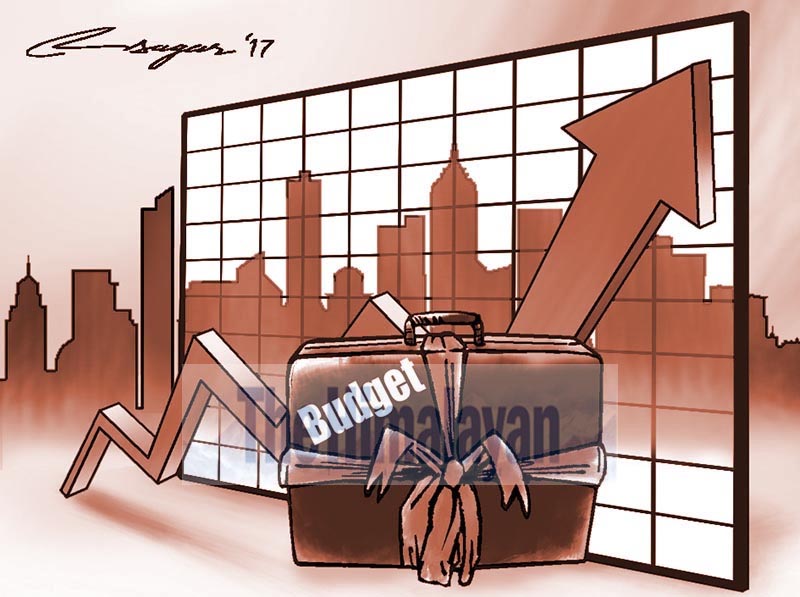Does size of the budget really matter?
Kathmandu, May 27
All economic experts agree that the government should bring a realistic, credible and reform-oriented budget for the fiscal 2019-20. While many stress on the execution and feasibility of the programmes, some experts opine the size of the budget also matters.
Kusum Shakya, head of Central Department of Economics, Tribhuvan University, opined that expansion in size of the annual budget was necessary to fulfil the needs of different layers of government (provincial and local) in the new federal system.
“However, the budget should not be allocated for programmes and projects that are infeasible and only add to the financial burden of the government,” she said.
As the Ministry of Finance is busy giving final touches to the budget for the upcoming fiscal, which is scheduled to be announced on Wednesday, economic analysts have stressed that the budget, unlike previous practices, should not be populist in nature or merely introduce aspirations of the government.
It should give priority to predictable policies and projects and focus on their execution.
Primarily, the budget should try to address emerging vulnerabilities in the economy, such as widening trade deficit, financial sector instability and alarming deficit in the balance of payments situation, opines Swornim Wagle, former vice-chairperson of National Planning Commission. “Sadly, it seems that the government is ignoring these issues and trying to once again accommodate populist programmes in the budget,” he said.
Wagle also urged the government to bring a balanced budget, especially in terms of its size against the backdrop of resource constraint. “Along with this, the government should identify new measures and sources for economic growth through the budget,” he added.
Experts say that the budget should also dwell on reforming existing policies that are hindering growth, including policies related to tax administration, procurement and other administrative work.
This alone, according to them, will accelerate development work and give the economy a much needed boost.
Economist Biswo Poudel believes that the new fiscal budget should adopt measures to reduce the current expenditure, which is growing at an alarming rate. “In the name of federalism and fulfilling lawmakers’ demands, the current expenditure — under different unproductive headings — is increasing.
Such expenditures will add financial pressure on the government, which will ultimately affect the country’s development,” he said.
Poudel also urged the government to introduce a trend of analysing failure in effective implementation of previous budgets and adopt new measures in the new budget accordingly. “Focus should also be on measures to expedite timely expenditure of the development budget,” he added.
Experts urged the government to introduce programmes through the budget that could be started and completed within the next fiscal 2019-20. They also stressed on maintaining fiscal discipline across all layers of the government through the budget, giving high priority to the manufacturing sector and simplifying tax rules.






